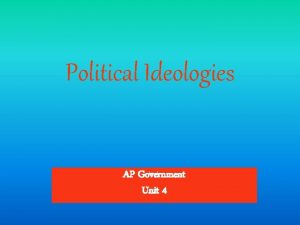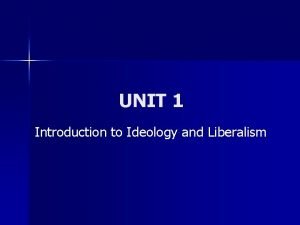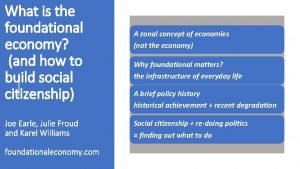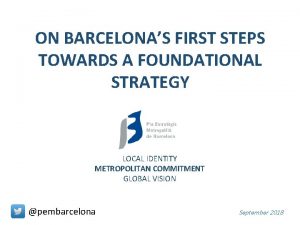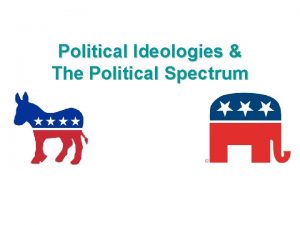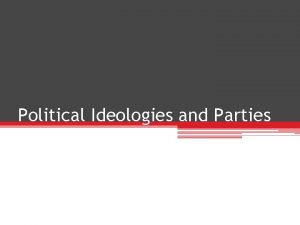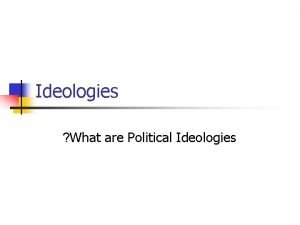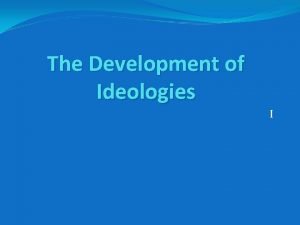Overview of Political Ideologies Foundational Disputes The various









- Slides: 9

Overview of Political Ideologies

Foundational Disputes The various ideologies tend to differ in their opinions on: • Human Nature • Individual versus Collective • Conception of Freedom

Four key Functions of an Ideology • Explanatory - How the world works. • Evaluative - Deciding whether things are good or bad. • Orientation - Supplies the holder with a sense of identity. • Programmatic - What to do and how to do it.

Liberalism • Desire for a free, open, tolerant society • Humans as rational and able to recognize and promote self-interest • Liberty and equality of opportunity

Liberalism’s Four Functions’ • Explanatory: Social conditions are the result of individual choices and actions. • Evaluative: Societies work best when individuals are free to do as they wish without harming or violating rights of others. • Orientation: Rational, self-interested individuals (and hence equal) • Programmatic: programs for promoting individual liberty and opportunity.

Conservatism • Human imperfection • Focused on conserving the existing social order • Custom and tradition are valued • Acceptance of inequality • Freedom and order

Conservatism’s Four Functions • Explanatory: Social conditions are the result of human imperfections (intellectual and moral) • Evaluative: Success is a question of social order and harmony. • Orientation: Each of us is part of a whole, and we should act with the interest of society (not just self) in mind. • Programmatic: Slow and cautious change

Socialism • Focused on the flaws of Liberalism • Individualism and Social Class • Economics and Political Power • Economic Equality as ‘True Equality’ • Economic Planning and the Welfare State

Socialism’s Four Functions • Explanatory: Social conditions can only be understood by reference to economic and class relations. • Evaluative: Sharpness of economic : divisions determines health of society. • Orientation: People should think of themselves in terms of their economic (class) position. • Programmatic: Policies must be put into place to advance economic equality (which is a prerequisite for ‘true’ political equality)

